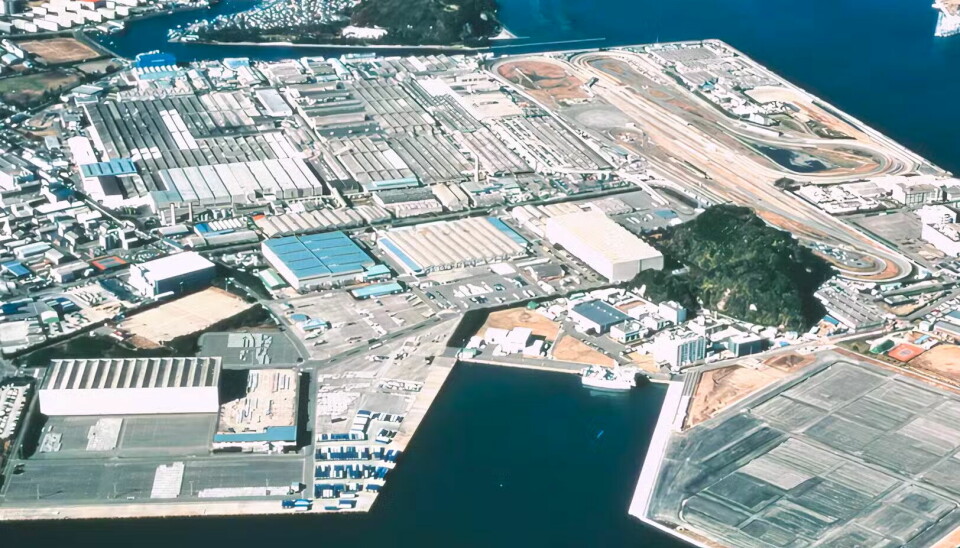Rescue through reuse

Nissan weighs Foxconn deal to rescue Japan EV plant
Nissan is in talks with Taiwan’s Foxconn to produce electric vehicles at its underutilised Oppama plant, a move that could preserve jobs, sustain local supply chains and support Japan’s EV ambitions while avoiding costly layoffs
Nissan is evaluating a potential collaboration with Taiwanese electronics manufacturer Foxconn to produce electric vehicles at the company’s Oppama plant in Japan. The discussions form part of Nissan’s broader restructuring programme, which includes plans to reduce its global final assembly footprint from 17 plants to 10.
The Oppama facility, located in Yokosuka, Kanagawa prefecture, is among those at risk. Once a cornerstone of Nissan’s Japanese production base, the plant has seen its output fall significantly in recent years.
Despite an annual capacity of 240,000 vehicles, its utilisation rate dropped to just 40% last year, far below the 80% level typically required for profitability.
Underutilisation and economic risk
At the end of October, the plant employed around 3,900 workers, and its potential closure has raised concerns among regional authorities. The surrounding industrial ecosystem includes many Nissan-affiliated suppliers who would be adversely affected by a shutdown. The local economy, too, would feel the consequences.
The site itself spans 170 hectares and houses crash testing courses, a research centre, and docking facilities for car carriers. Shutting down the facility would not only incur the high cost of severance and relocation but would also require Nissan to replace these critical development assets elsewhere, delaying new product rollouts and weakening its development capabilities.
Foxconn eyes a production base in Japan
For Foxconn, the interest lies in establishing a manufacturing presence in Japan. The company, officially Hon Hai Precision Industry, has been accelerating its expansion into the electric vehicle sector since 2019. It has adopted a contract manufacturing model, similar to its approach in consumer electronics, and has been forging partnerships with global automakers.
In 2024, Foxconn acquired a 50% stake in a ZF subsidiary specialising in vehicle chassis. Within Japan, it signed an agreement to supply Mitsubishi Motors with electric passenger vehicles and is also preparing to deliver electric buses to Mitsubishi Fuso.
Access to a facility like Oppama would provide a ready-built production base and strengthen its ties with Japanese automakers.
The plan under discussion would involve Foxconn using the Oppama site to manufacture its own EVs, while Nissan would contribute excess capacity by allocating unused production lines. A joint venture remains one possible structure.
Read more Nissan stories
-
Nissan to slash 20,000 jobs and abandon battery plant as new CEO restructures operations after mounting losses in US and China
-
Nissan transfers Rogue SUV output from Japan to Tennessee to hedge against new US tariffs and preserve its share of the American market
-
Nissan slashes jobs, closes 3 factories and scales back production in a bid to recover from sustained losses and a failed merger with Honda
-
Nissan to amplify green steel usage in Japan by 500% aligning with global automakers in pursuit of carbon neutrality by 2050
Political caution and strategic calculation
Although the proposal has clear economic logic, it also carries political sensitivity. Japanese policymakers have historically been wary of foreign influence in core manufacturing industries, especially when it involves strategic players like Nissan. Foxconn’s potential role in the management or long-term operation of a Japanese automotive facility could trigger scrutiny.
Nonetheless, the arrangement may ultimately be viewed as a pragmatic compromise. It would help Nissan avoid the financial and reputational cost of closing a major plant, while preserving thousands of jobs and maintaining the regional supply chain. For Foxconn, it offers a toehold in a critical automotive market where domestic OEMs have traditionally been resistant to outside manufacturing partnerships.
Learn how OEMs are retooling smart, not shutting down
Join the livestream Scan-First Digital Twins on 24 July to see how leading manufacturers can turn underused plants into agile, ROI-driven assets.
A response to global headwinds
The potential partnership also reflects the mounting international pressures facing Japanese automakers. Nissan has already warned that tariffs from the United States under former President Donald Trump’s administration could cut its operating profit by as much as ¥450 billion ($3.12 billion) this fiscal year.
In response, the company is rebalancing its manufacturing footprint, trimming fixed costs and reassessing its capital allocation. Repurposing existing infrastructure, rather than shuttering it, may prove the more efficient path. A tie-up with Foxconn could provide both the financial and strategic relief needed during this transition, while offering a glimpse into the evolving dynamics between legacy manufacturers and contract-based new entrants.
What emerges from these talks may well become a model for others. As the shift to electrification continues, and as global supply chains are reshaped, unconventional partnerships may become not just viable but necessary.




